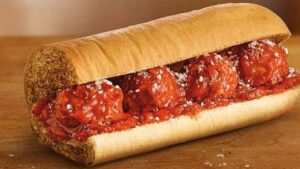The rolls used in Subway’s hot sandwiches contain too much sugar to be considered bread, according to Ireland’s Supreme Court.
Ireland’s highest court made the ruling in a case about how the bread is taxed.
An Irish franchisee of the US company had claimed it should not pay VAT on the rolls it uses in heated sandwiches.
However, the court ruled that because of the amount of sugar they contain, they cannot be taxed as a “staple product” at a zero rate of VAT.
Under Ireland’s VAT Act of 1972, ingredients in bread such as sugar and fat should not exceed 2% of the weight of flour in the dough.
The five judges, who were considering an appeal by Bookfinders Ltd, a Subway franchisee based near Galway, concluded that in Subway sandwiches the sugar content is around 10% of the flour in the dough for both white and wholegrain rolls.
In Irish law, bread is considered a staple food and has a zero rate of VAT. Following the ruling, the rolls are subject to tax at 13.5%.
The case stems from a decision by Ireland’s tax authority in 2006 to refuse Bookfinders’ request for a refund on VAT payments made between 2004 and 2005.
After an appeal commissioner upheld the tax authority’s refusal of a refund, Bookfinders took its case to the High Court which it lost before going to the Court of Appeal, where it was also unsuccessful.
Subway has been contacted for comment.
